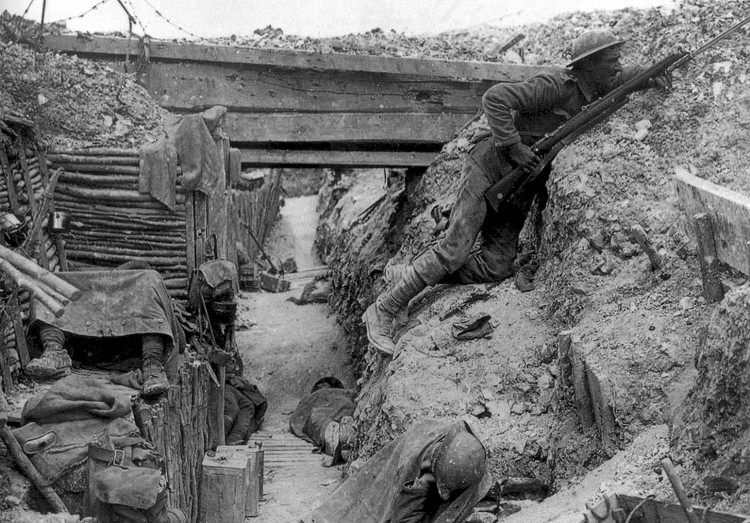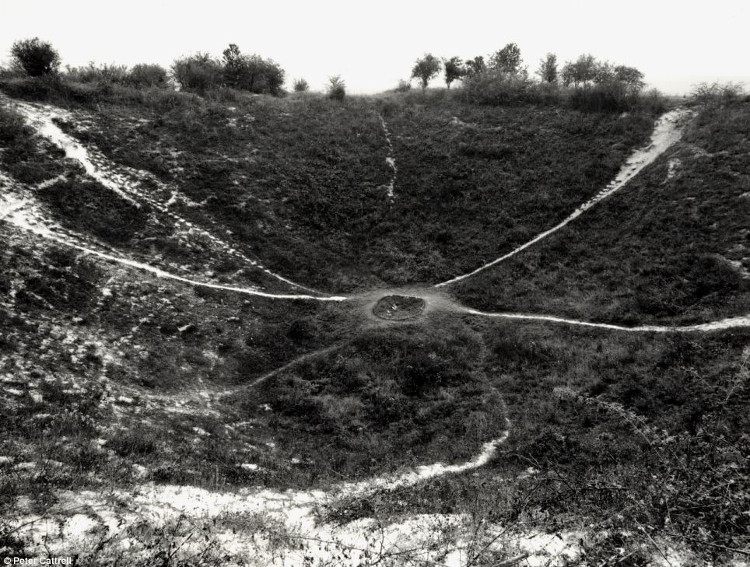Decode the largest non-nuclear explosion in the history of the world
100 years after the end of the First World War, this is still considered the largest non-nuclear explosion in the world.
Due to the exhaustion of the battle of struggling every meter of land on the seemingly unending trenches since the beginning of the First World War, the British decided to create the biggest explosion in human history. the type to "blow" the entire German army at the Battle of Ypres in Belgium in 1917. To accomplish this difficult task, the Royal Engineers decided to dig a system of more than 20 tunnels under one high. points are occupied by German troops.

There have been 21 tunnels dug in which more than 450 tons of explosives, the deepest tunnel section reached 29 meters.
The tunnels were dug with coal mining techniques, the Royal Engineers of England also brought here the soldiers' teams including all former pre-war miners to complete this death tunnel system as soon as possible. The better. A total of 21 dug tunnels were contained, of which more than 450 tons of explosives, the deepest tunnel was 29 meters and contained 41 tons.
There were 19 Royal Army soldiers killed in the tunneling process. The diligent Royal Army soldiers worked day and night to dig one of the 21 tunnel sections containing a total of 450 tons of explosives.

This explosion killed tens of thousands of German soldiers.
The biggest explosion in human history took place at 3:30 am on June 7, 1917, 450 tons of electrically explosive explosives took 19 seconds to explode and caused a slight earthquake. In total there were about 10,000 German soldiers killed in the explosion and this is the biggest explosion in human history until the nuclear bomb was born. Despite this, the British side still could not really gain the advantage at this Ypres battle when the attacks after their historic explosion were stopped by German artillery.
- The largest ship explosion in history, killing 2000 people, leveling seaports
- Super nuclear bomb has the most explosive power in the world
- The world's largest atomic bomb explosion 54 years ago
- The largest nuclear project in history
- HMS Artful - World's largest nuclear submarine
- The object was amazingly intact after the atomic bomb explosion in Hiroshima
- Re-launch the world's largest nuclear accelerator
- The deadliest ship explosion in the United States, blowing away barges and aircraft
- Strange cloud of nuclear bomb explosion appeared in Russia
- Decode the largest naval battle in the history of the ancient world
- The world's largest explosion before the atomic bomb
- The world's first underwater nuclear explosion
 'Fine laughs' - Scary and painful torture in ancient times
'Fine laughs' - Scary and painful torture in ancient times The sequence of numbers 142857 of the Egyptian pyramids is known as the strangest number in the world - Why?
The sequence of numbers 142857 of the Egyptian pyramids is known as the strangest number in the world - Why? History of the iron
History of the iron What is alum?
What is alum?